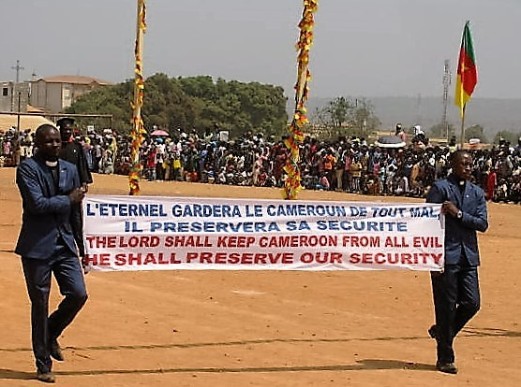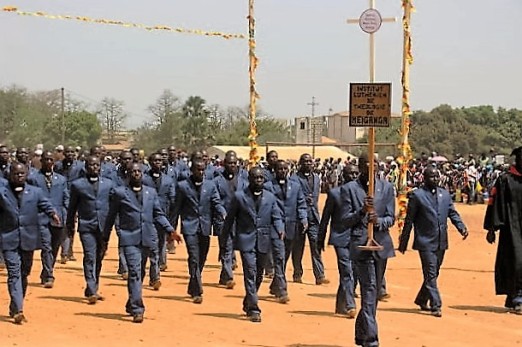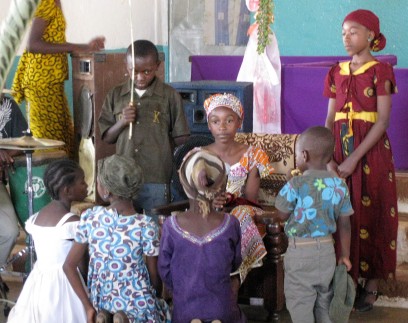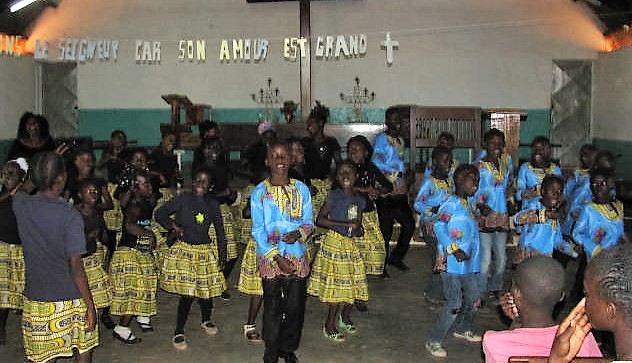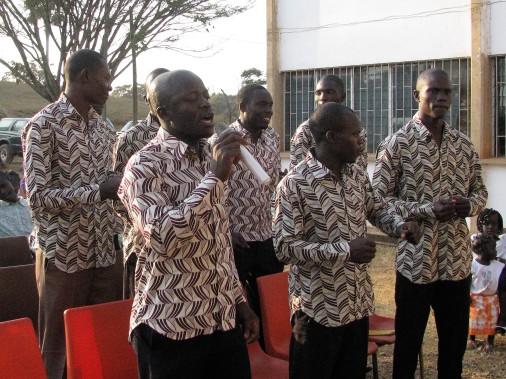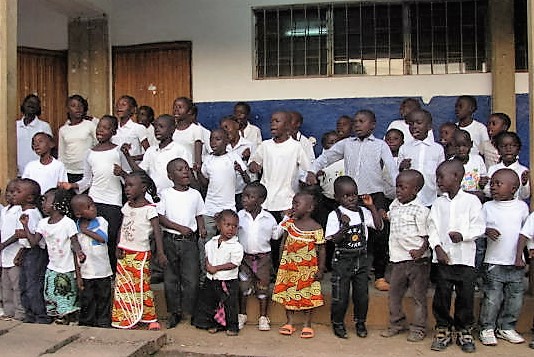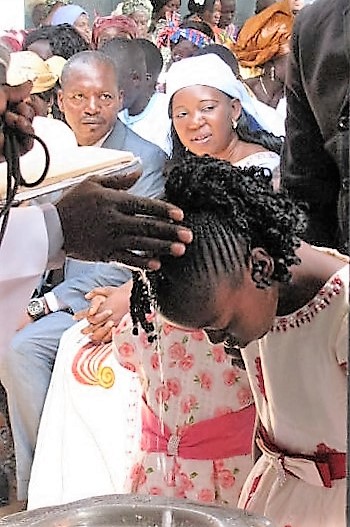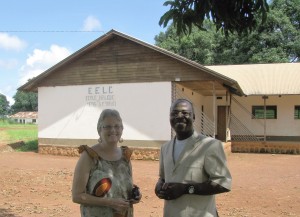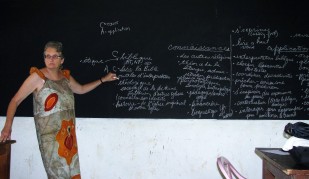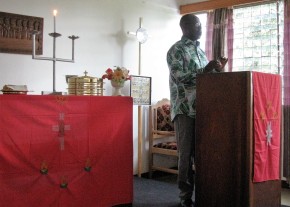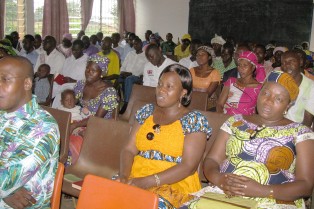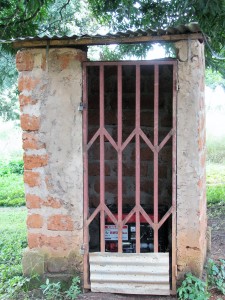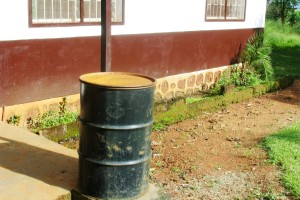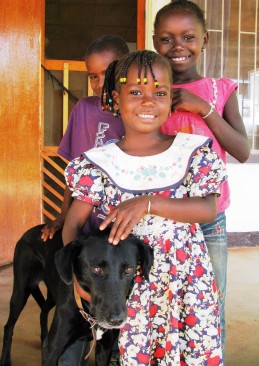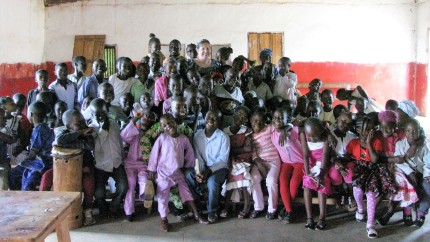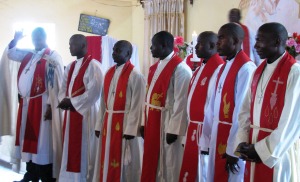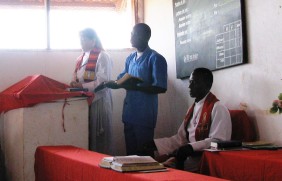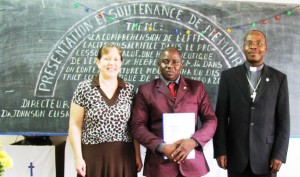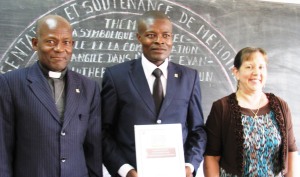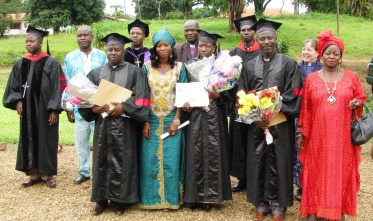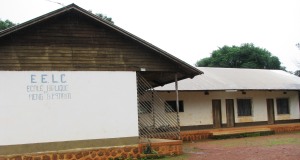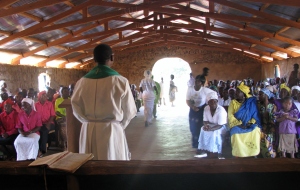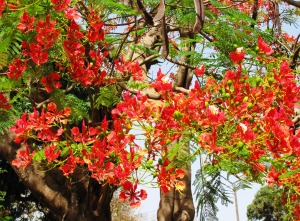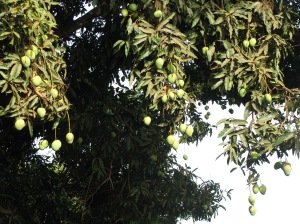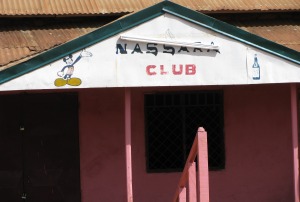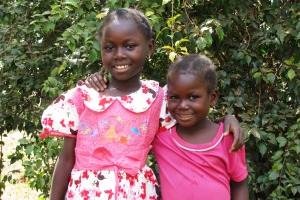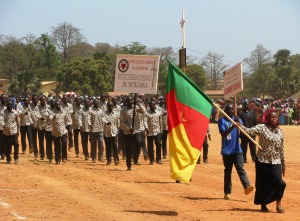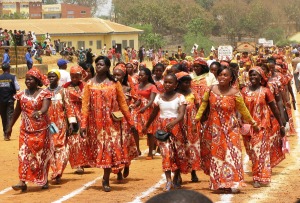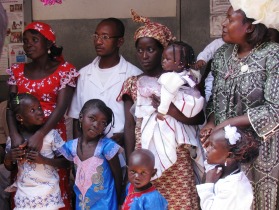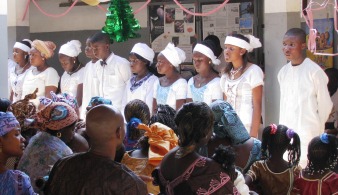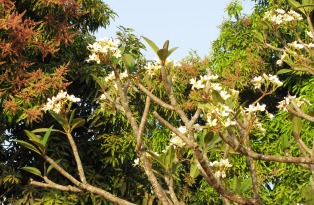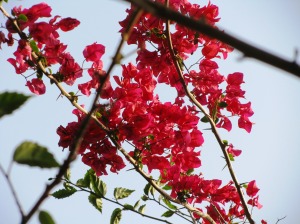July 27, 2017
It is almost the end of July already. How is that possible? Life and work have been extremely busy these last few months. I will start with work…
Another academic year has come to a close. They seem to go by faster and faster every year! At the end of May, graduation ceremonies were held for the students of the Institute’s special program to train evangelists to be pastors at the Bible school at Meng (250 km west of Meiganga). Thirty students (29 men and 1 woman) graduated from this program. They will now begin two years of internship under the supervision of an experienced pastor before being approved for ordination.
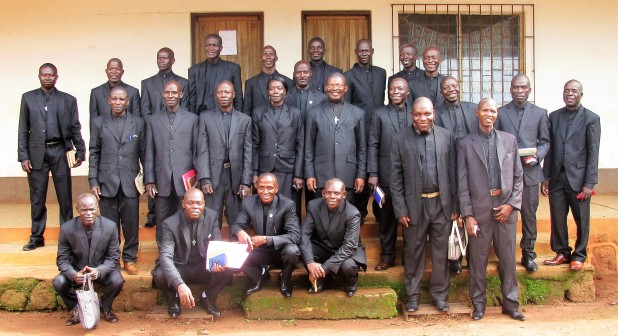
Graduates of the program at Meng
Our academic year at the Institute in Meiganga lasted a bit longer. After final exams, it was time once again for “soutenances” (oral defense of final papers and master’s theses). I was the director for the final papers of three students in our licence program and the thesis of one student in our master’s program, so the workload was pretty intense. I am happy to say that all of the students finished well.
Graduation ceremonies for the Institute were held Sunday, July 2. Nine students (8 men, 1 woman) graduated with the licence degree and one with a master’s degree. Three of the licence students and the master’s student were already ordained pastors who came back to the Institute for further study, so they are heading back to their ministries. The others will start two years of internship.
The Evangelical Lutheran Church of Cameroon held its bi-annual “Synode Général” (churchwide assembly) in late June in Poli, which is in the northwest region of Cameroon. Bishop Ruben Ngozo was elected to a second four-year term as national bishop, and Pastor Adolph Tellesam to a second term as assistant to the national bishop.
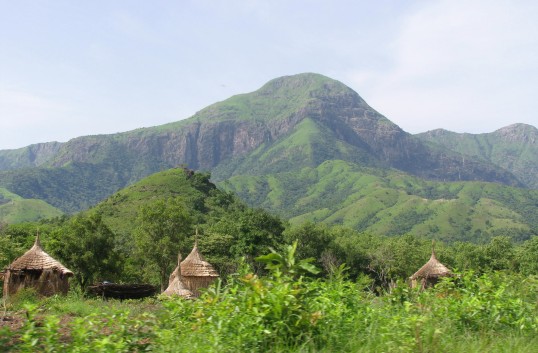
Beautiful landscape in the Poli region
My colleague Anne Langdji (ELCA Global Mission regional representative for West/Central Africa and Madagascar) and I attended the synod only for a day because of security concerns in the region. Even though the time was short, we were able to meet with the women pastors in the EELC (10 already ordained, plus one who will be ordained very soon). They are planning a spiritual retreat for women pastors, with generous aid from the Manitoba/Northern Ontario Synod of the Evangelical Lutheran Church in Canada. It has only been five years now since the first women were ordained in the EELC, and like all pioneers, they face many challenges. So we are looking forward to a time of mutual encouragement at the retreat in January 2018.
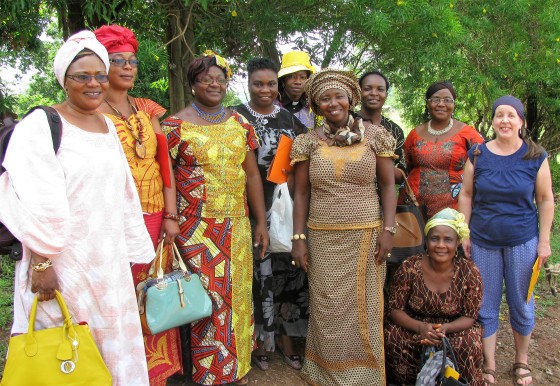
Women pastors of the EELC
Three Elisabeths… and one Lelo
Last year (January 2016) I was honored when one of my students and his wife named their newborn girl after me. She is now 18 months old. She is in the photo below (top left), taken after our graduation ceremonies a few weeks ago, where her father was one of the graduates. Then in January of this year, the son and daughter-in-law of my cook and housekeeper, Marie, had a baby girl, and they too decided to name her Elisabeth. Here is the second baby Elisabeth with her parents (bottom left) and with me in April.
Then in May this year, another student and his wife named their baby girl – you guessed it – Elisabeth. They also asked me to be her godmother, which of course is a great honor. She was baptized on July 16. She is in the two photos below on the left with her parents and with me on her baptism day. I was equally honored to be asked to be the godmother of another little girl named Lelo, (pronounced lay-low), also the daughter of a student. She was born in July 2016 and baptized on Easter Sunday this year. Here is Lelo with her mother and sister and with me on the day of her baptism (two photos below right).
Having all of these little girls in my life is truly a blessing!
But wait, there’s more…..
Introducing Schekina, David, and Etienne
My husband Eric has a lovely, smart 14-year-old daughter named Schekina (photo below, left), whom I am officially adopting, and Eric and I are also adopting two little boys! Their names are David and Etienne. They are both orphans but not related to each other. Both were born in similar sad circumstances : in both cases, the mother died shortly after giving birth, and no father or other family member came to claim the baby, so they have been in foster care ever since. Eric knows the social worker assigned to their cases, and he has been visiting them both since they were babies. The adoption is already complete on the Cameroonian side, so now we begin the US process. We are hoping that will go smoothly.
In the photos below, Etienne is on the left and David on the right. It is difficult to get them both to look at the camera at the same time!
We are also hoping that the company Eric works for will transfer him very soon to Ngaoundéré (160 km from Meiganga), so that we will be much closer together and at least able to spend weekends together. We have postponed the church blessing of our marriage until December. At that time David and Etienne will also be baptized, so it will be a grand celebration! We thank God for bringing us together, and we are looking forward to forming a family with David, Etienne, and Schekina.
Thank you for checking in. I am always grateful for your prayers, especially in this time of major life transitions!
+ Grace and peace +
A brief addendum: On Sunday, July 30, I had the honor of participating in the ordination of one of our former students, Rachel Asta, who is now the 11th woman to be ordained as a pastor in the EELC.



















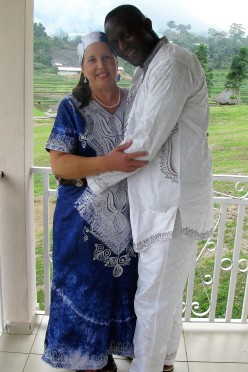
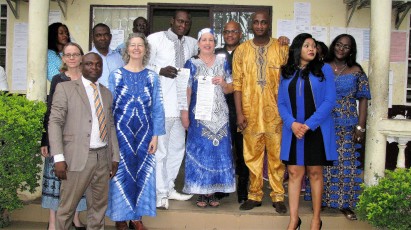
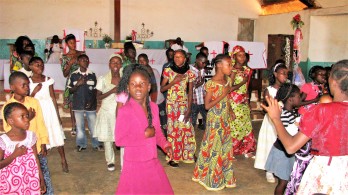
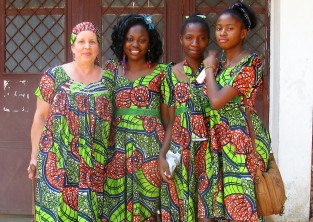

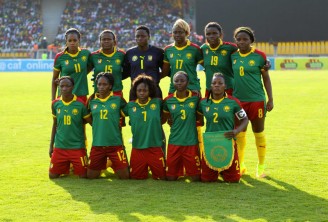

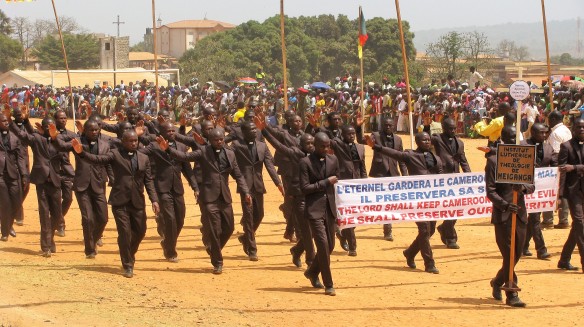
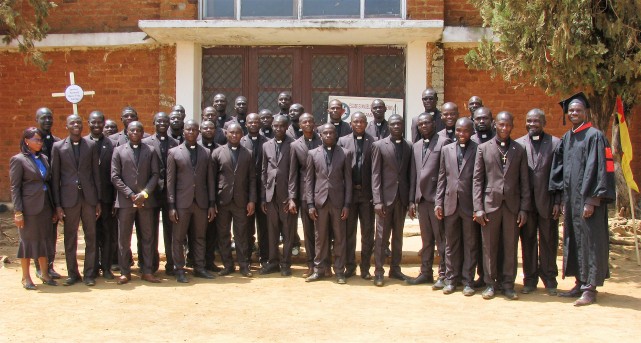
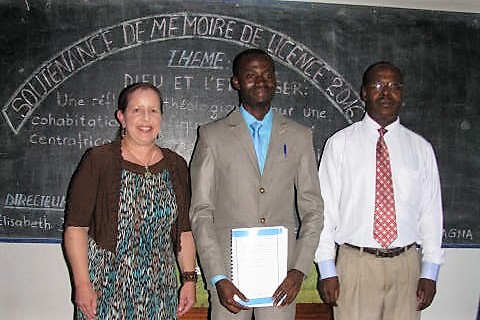

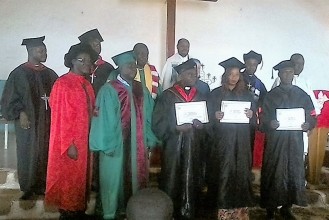
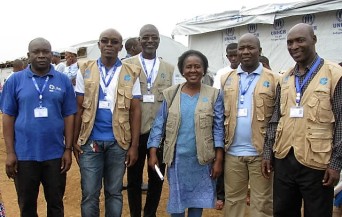
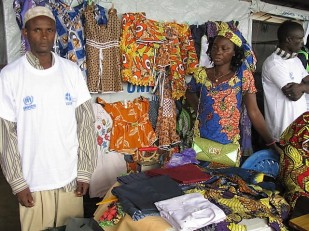
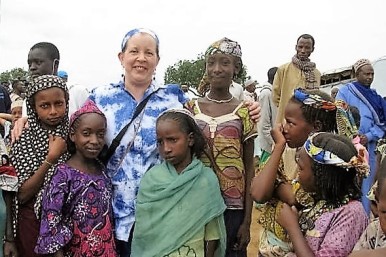
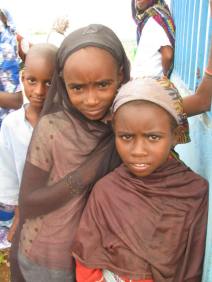

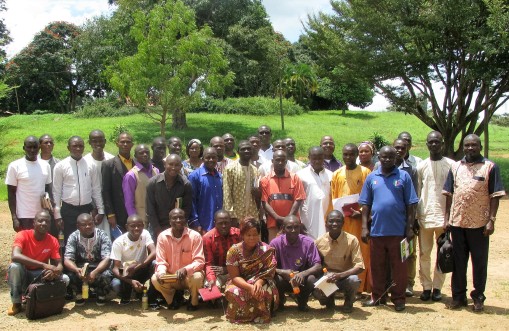
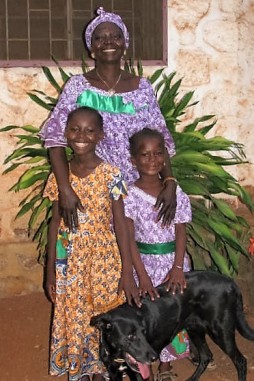
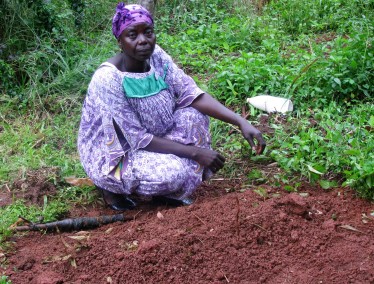

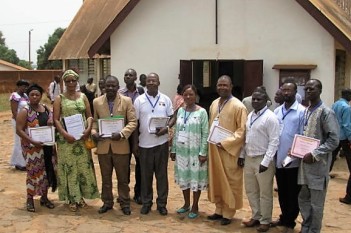
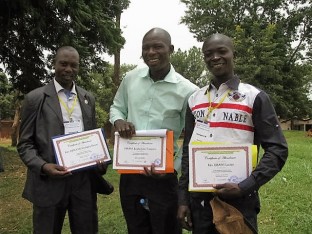
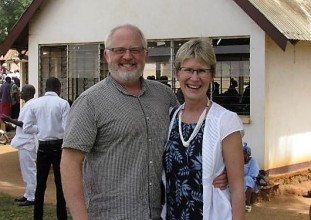
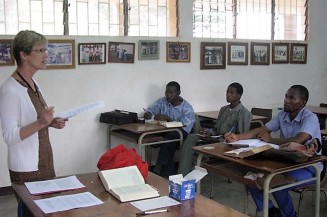
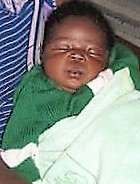 Of course, the cycle of life continues. The last week in January, during the week of exams for the first semester, one of our students’ wives gave birth to a baby girl. To my great surprise, they decided to name the baby after me. Here she is, the newborn Elisabeth Ann.
Of course, the cycle of life continues. The last week in January, during the week of exams for the first semester, one of our students’ wives gave birth to a baby girl. To my great surprise, they decided to name the baby after me. Here she is, the newborn Elisabeth Ann.